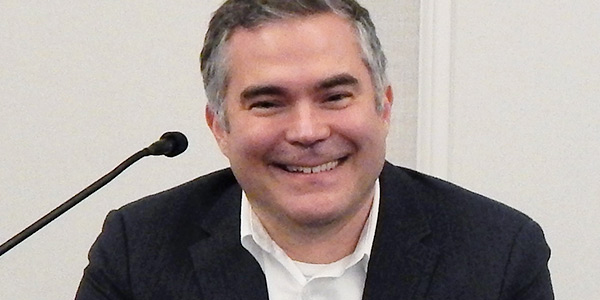SPP and MISO are picking up the pace of developing their 2020 coordinated system plan (CSP), staff told the Seams Steering Committee last week.
SPP’s Neil Robertson said both RTOs have published project needs to their individual stakeholder groups. Once the project submissions come in, he said, staff will begin the evaluation phase of those projects. The RTOs will reveal their final portfolios in October and December, respectively.
The RTOs agreed to conduct a CSP this year to determine whether there are any interregional projects worth pursuing. (See MISO, SPP Staff Recommend 2020 Joint Study.)
SPP Director of System Planning Casey Cathey once again expressed his optimism that the CSP will result in a joint project this year. Three previous attempts between SPP and MISO have been fruitless, but Cathey said there has been a large jump in MISO’s prevailing north-to-south system flows.
“The likelihood of economic and reliability projects that meet the thresholds in the [joint operating agreement] is much higher this cycle,” he said. “That’s just by nature of MISO updating their models and SPP’s regional approach to reflect their range of futures and growth, including all new generation in the north.”
MISO’s models include additional wind generation in its northern regions not found in SPP’s models. Cathey said staff are aware of the situation and pondering additional sensitivities to meet those needs.
SPP, AECI Agree to Joint Study
SPP has also agreed to a joint CSP in 2020 with Associated Electric Cooperative Inc. following a March 30 meeting of their Interregional Planning Stakeholder Advisory Committee, Robertson told the SSC.
A scope document has been approved, and solutions will soon be shared. Robertson said the entities plan to finish their analysis in August, after which SPP will have to file a contract with FERC.
The joint CSP could include a 345-kV competitive project approved in January by the RTO’s board as part of the 2020 SPP Transmission Expansion Plan. Robertson said the $152 million, 105-mile Work Creek-Blackberry upgrade in Kansas and Missouri will be included in the study to determine whether there are any system reliability impacts. (See “Directors Approve $545M Transmission Expansion Plan,” SPP Board of Directors/MC Briefs: Jan. 28, 2020.)
Committee Endorses Study of MISO RDT Flows
The committee unanimously endorsed a summary report on the effect of MISO’s contract path to its southern footprint, after first inserting language making it clear the study “should not be used to draw broad conclusions about the impact of MISO RDT [regional directional transfer] flows” to SPP’s region.
The study was inconclusive as to whether MISO’s above-capacity RDTs created a “pattern of financial harm.” Several members pointed out the analysis does not consider the costs of real-time deviations from day-ahead market positions or the economic redispatch of the MISO system. (See “Congestion Study Inconclusive on MISO Contract Path,” SPP Seams Steering Committee Briefs: March 12, 2020.)
The study looked at the SPP day-ahead market’s external flows and solution costs to determine whether RDTs above the contract path capacity between MISO’s South and Midwest sub-regions created additional congestion or operating costs for SPP’s market. MISO is limited to 1,000 MW of contracted, firm capacity over the contract path as a result of a 2015 settlement agreement. (See SPP, MISO Reach Deal to End Transmission Dispute.)
SPP Again Winds up with Positive M2M Settlements
SPP recorded another $1.06 million of market-to-market (M2M) settlements in February, the fifth straight month — and 44th in 60 months — the M2M process with MISO has settled in its favor.
SPP has now earned $73.59 million from M2M settlements with its neighbor since the two began the process in March 2015. The process provides a compensation mechanism when SPP or MISO have to re-dispatch transmission around congested flowgates.
Temporary and permanent flowgates on the RTOs’ seam were binding for 453 hours during January. Temporary flowgates accounted for 385 of the binding hours.
— Tom Kleckner






